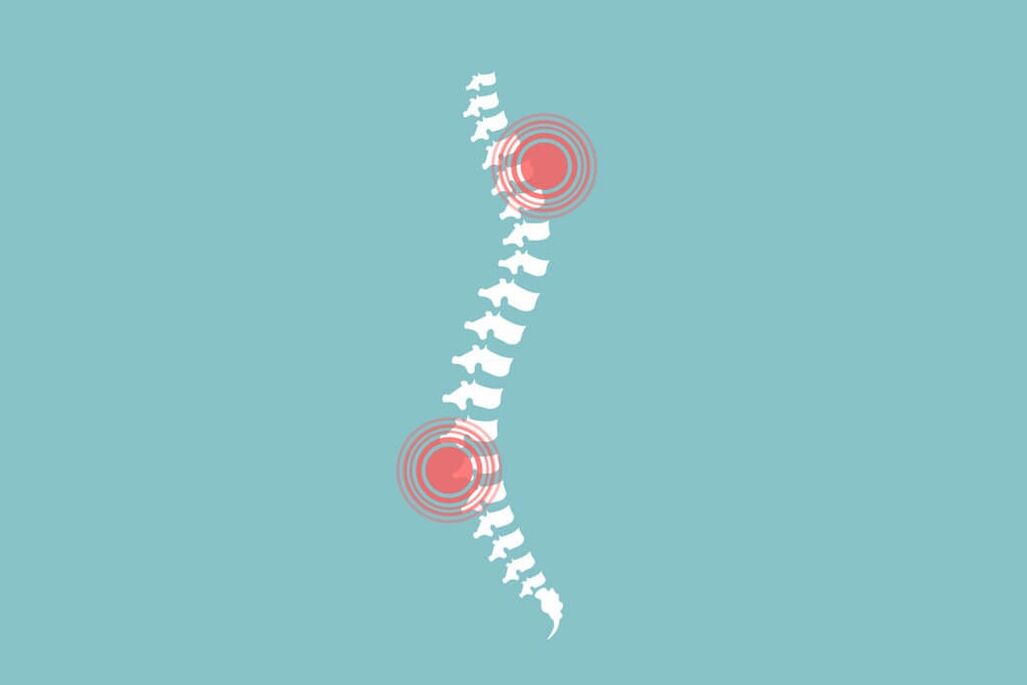Back pain, back fatigue is the scourge of our time. A sedentary lifestyle, sedentary work, high-calorie diet and as a result excess weight contribute to the development of spinal diseases. What are we struggling with the most? And where to go for help when your back hurts?

Why does your back hurt?
Back pain is spoken of when a person feels it along the longitudinal axis of the body, to one side of the spine. It is estimated that up to 80% of people worldwide suffer from back pain. It occurs in different parts of the spine: from the cervical, thoracic and lumbar to the sacrum. However, patients often complain of pain in the neck and lower back.
The spine produces sensation on its own due to mechanical trauma. But often the cause can be degenerative changes, inflammation, or diseases that affect the mobility and condition of the joints.
Other factors that indirectly affect the health of our spine are also important. As we age, the spine becomes more vulnerable. It is also affected by poor physical condition and inactivity.
This is especially true for people who lead a sedentary lifestyle and work a lot on the computer.
Workers who do physically strenuous jobs are more prone to back injuries and pain from overuse.
Obesity can also cause back pain, as well as chronic stress and depression.
Back pain: the most common causes
- Mental illness- we talk about this when we are dealing with a so called herniated disc. It is accompanied by irritation or even nerve root damage. Most commonly occurs in the lumbar spine. This is manifested by back pain that travels down the leg causing you to lean forward and arch your spine. Most commonly affects young people between the ages of 25 and 40.
- Lumbago- also known as low back pain. Sharp, painful photography affects bright areas (lower back). This is one of the main reasons to visit the doctor's office. The cause is almost always mechanical trauma from overuse of the spine. The pain increases when bending and lifting objects. It sometimes goes away after a few days, but it can last for several weeks.
- Sciatica body painIn this case, the pain is caused by compression of a piece of the disc on the nerve roots. Pressure on the sciatic nerve or its roots causes severe pain that radiates down the buttocks and legs. Sciatica is inflammation of the sciatic nerve as a result of a developing degenerative spinal disease.
- Osteoporosis- a disease that affects the elderly, especially post-menopausal women. This manifests as a gradual loss of bone density and weakened bone structure, making them more susceptible to fracture. This is a condition that leads to decreased bone growth, kyphosis, and severe back pain. The disease can also lead to so-called compression fractures of the vertebrae, even with only a minor impact.
Who should you contact for help?
If we feel back pain, we should see a specialist immediately. The doctor will be able to conduct a preliminary examination and order an X-ray, CT or MRI at his discretion. If he considers it necessary, we will receive a referral to an orthopedist - a doctor who specializes in diagnosing and treating the skeletal system.
In case of problems with the spine and the entire skeletal system, you should also consult a physiotherapist. He will take care of us with correct posture and present a series of exercises that strengthen our spine.
How to monitor the spine?
In the case of our spinal condition, there is an old and simple rule: prevention is better than cure. Just following a few simple rules of the day is enough to enjoy life without back pain:
- Exercise regularly.On the one hand, do exercises that allow you to maintain a proper body weight and stay in shape. On the other hand, do exercises that strengthen the paravertebral muscles. We also need to remember how to stretch. It will improve muscle flexibility and prevent cramps and stiffness. It will also improve the blood supply to the muscles and tissues.
- Correct posture.It is necessary to monitor your posture both when walking and in sitting and lying positions. Try not to relax or bend your spine in an unusual way, such as when sitting.
- Suitable mattress.The way we sleep has a significant effect on the health of our spine. The mattress should not be too soft or too hard. It is best to consult a qualified dealer when choosing a mattress. He will choose it according to your needs.
- A balanced and healthy diet.It must be rich in essential vitamins and minerals. Also, contains proteins, fats and carbohydrates in the correct proportions.







































